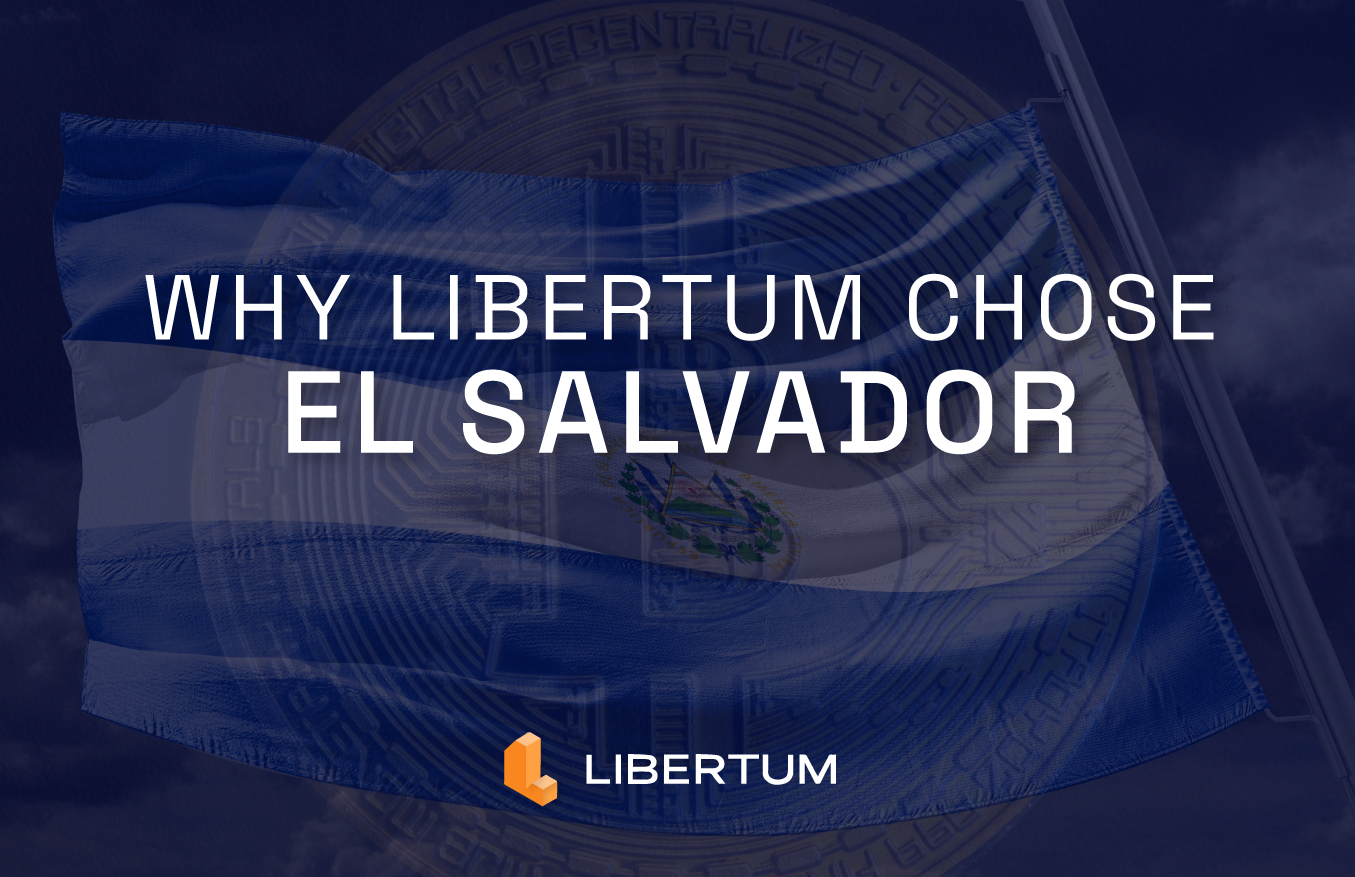There’s something symbolic about El Salvador. A small, often overlooked nation that dared to reimagine its place in the global financial system by embracing Bitcoin—not as a gimmick, but as a statement of sovereignty and vision. It’s not just about crypto—it’s about building an economy that refuses to be cornered by outdated financial rails, slow-moving regulators, and extractive middlemen.
At Libertum, we believe in the same ethos: that finance should be inclusive, programmable, and borderless. That people—whether investors, real estate owners, fund managers, or developers—deserve more than a fragmented system of red tape, fees, and gatekeepers. So when we looked at where to base our core licensing, the answer became increasingly clear.
El Salvador’s DASP (Digital Asset Service Provider) license isn’t just a legal stamp—it’s a platform for aligned innovation.
Why El Salvador, and Why Now?
In 2021, El Salvador became the first country to make Bitcoin legal tender. That alone was revolutionary. But what followed was even more meaningful: a full-stack regulatory framework designed not only to permit digital asset innovation—but to encourage it.
Today, under the National Commission for Digital Assets (CNAD), El Salvador offers a licensing structure that’s:
- Clear and forward-looking
- Geared toward international operators
- Backed by strong legal enforceability
And perhaps most importantly, the tax regime is aligned with the new economy:
- 0% capital gains tax
- 0% income tax on digital assets
- 0% VAT on crypto-related services
This doesn’t just help Libertum—it helps you.
What This Means for Libertum and Its Community
By operating under the DASP regime:
- Libertum avoids burdensome operational taxes
- We retain more capital for product development, user support, and yield sharing
- Our platform becomes faster, leaner, and more globally accessible
And for you as a user:
- No capital gains tax on your token profits
- No withholding tax on rewards or interest
- A legally regulated but economically liberated way to engage with tokenized assets
We’re not simply optimizing for compliance—we’re building a new standard of fairness.
The Power to Pass on the Benefits
A platform’s incentives shape its behaviour. When your business is taxed on every transaction or gain, you inevitably push those costs down to your users. That’s the hidden cost of operating from “safe” jurisdictions—safety becomes expensive.
With El Salvador’s DASP structure:
- We can absorb less, deliver more
- We aren’t forced to raise fees to meet compliance costs
- We’re free to design product tiers, pricing models, and revenue-sharing mechanisms that reflect real alignment with our users—not with tax collectors
This isn’t about tax avoidance—it’s about value distribution.
A Rising Global Crypto Hub
Recent moves show El Salvador isn’t just holding the line—it’s doubling down. According to Bloomberg, the country is now forming diplomatic and economic partnerships with others based entirely around digital assets.
It’s no longer a lone voice in the wilderness—it’s becoming a networked crypto state, attracting developers, capital, and infrastructure providers globally.
Under the leadership of figures like Juan Carlos Reyes (a Canadian crypto advocate heading CNAD), El Salvador is welcoming:
- Tokenization companies
- On-chain lending platforms
- Real-world asset marketplaces
- Public-private experiments in programmable finance
Libertum is proud to be part of that story. We’re not building on shifting sands—we’re building in a jurisdiction that gets what we’re doing.
The Bigger Picture
When we talk about “tokenization,” it’s easy to get lost in technical jargon. But at its core, this movement is about ownership.
Who gets to own property? Who gets to lend or invest without being accredited? Who gets to exit legacy systems and use tools that reflect the world they actually live in?
Licensing in El Salvador isn’t just a strategy—it’s a philosophical choice.
We want to be part of a financial system that:
- Rewards users, not gatekeepers
- Encourages experimentation without penalizing success
- Enables new financial flows in underrepresented regions
What’s Next
We’re already licensed under the DASP framework, which means:
- We can issue and manage digital assets under law
- We can offer regulated financial products without relying on slow, hostile systems
- We can open the door for others—asset owners, developers, fund managers—to plug into our infrastructure and benefit from the same freedoms
This is just the beginning. As Libertum scales, the structure we’ve chosen in El Salvador gives us the stability and flexibility to keep moving fast—without compromise.
Final Thought
Some jurisdictions see innovation as a threat.
El Salvador sees it as a path forward. So do we.
We didn’t choose El Salvador just to cut costs—we chose it to build a smarter, fairer, more agile platform, for ourselves and for you.
Let’s build something better—together.
